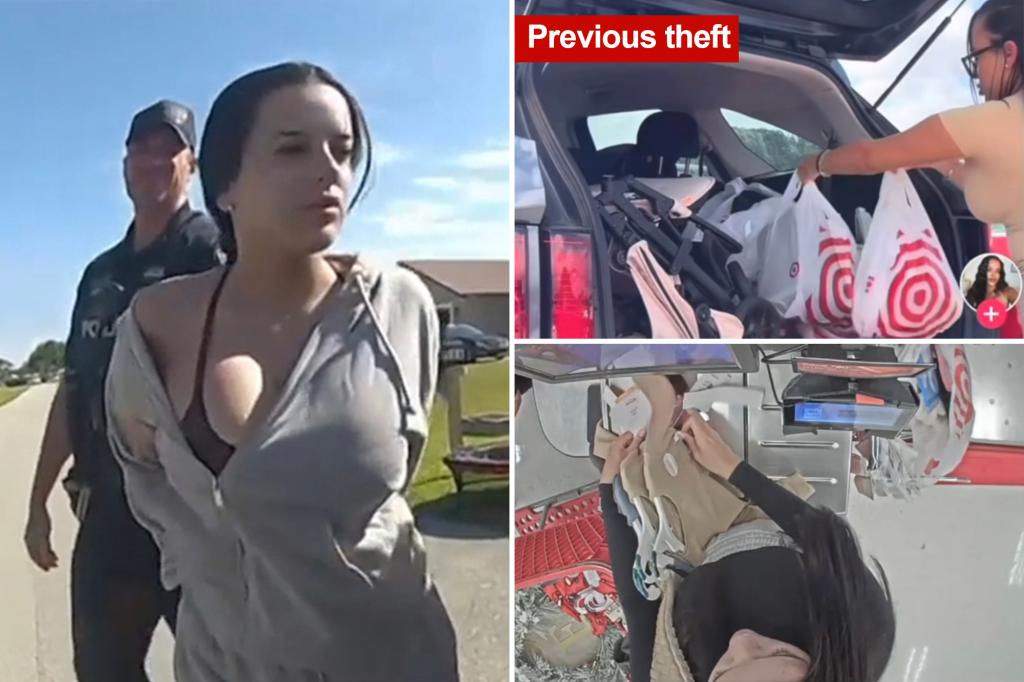Marlena Velez, a 22-year-old TikTok influencer, faces renewed legal troubles after being arrested for allegedly stealing from a Target store in Cape Coral, Florida, for the second time. Velez initially made headlines last month when she was taken into custody for reportedly shoplifting 16 items worth over $500 from the same store. Disturbingly, her social media presence played a crucial role in identifying her; police used her TikTok posts, where she flaunted her shopping experience, to link her to the theft. With nearly 400,000 followers, Velez’s influence on the platform was marred by her alleged criminal activities, showcasing the intersection of social media fame and legal misconduct.
The recent incident occurred on November 20 when Velez was apprehended once again for stealing merchandise from Target. According to reports from NBC 2, Velez used a counterfeit barcode to scan various items at the self-checkout, managing to leave the store with 16 household goods and clothing valued at $225. Velez’s apparent method of operation—manipulating the self-checkout system—raises concerns about the security measures in place at retail stores, and the case sheds light on the evolving tactics employed by shoplifters in the digital age.
Investigators were able to identify Velez as the suspect through surveillance footage, which showcased her actions during the theft. Furthermore, a distinctive detail—a tattoo on the arm of a male accomplice present during the incident—was noted, suggesting a connection back to some of Velez’s TikTok videos. This reliance on social media content highlights the modern challenges law enforcement faces; digital footprints linked to influencers can inadvertently provide evidence for criminal investigations.
Velez’s criminal history is more extensive than just these recent shoplifting incidents. In 2019, she made headlines at the age of 17 when she was arrested on charges of grand theft auto for stealing and crashing her friend’s car. Additionally, she was apprehended in July 2023 for shoplifting at a Walmart in Cape Coral. Such a pattern of behavior raises questions about delinquency and accountability, particularly considering her prominence as a social media figure. The balance between online personas and real-life actions is critical for influencers who wield significant social sway, often at the risk of endorsing unethical behavior to their audiences.
The implications of Velez’s repeated thefts and her engagement with social media reflect a deeper cultural issue surrounding conformity to societal expectations, especially among young people seeking validation through online platforms. As influencers often curate idealized lifestyles that may entice imitative behavior in their followers, Velez’s case serves as a cautionary tale of how public personas can conflict with personal conduct, potentially leading to detrimental consequences both legally and socially.
Ultimately, the repeated legal troubles of Marlena Velez illustrate the intricate relationship between digital platforms and real-world actions, showcasing how fame can be both a powerful tool for influence and a potential catalyst for negative behavior. As her story unfolds, it raises important discussions about responsibility, societal pressures on influencers, and the accountability that comes with maintaining a public image within the online community. The outcome of her ongoing legal challenges will undoubtedly scrutinize the broader implications of influencer culture and the responsibilities their platforms demand.

